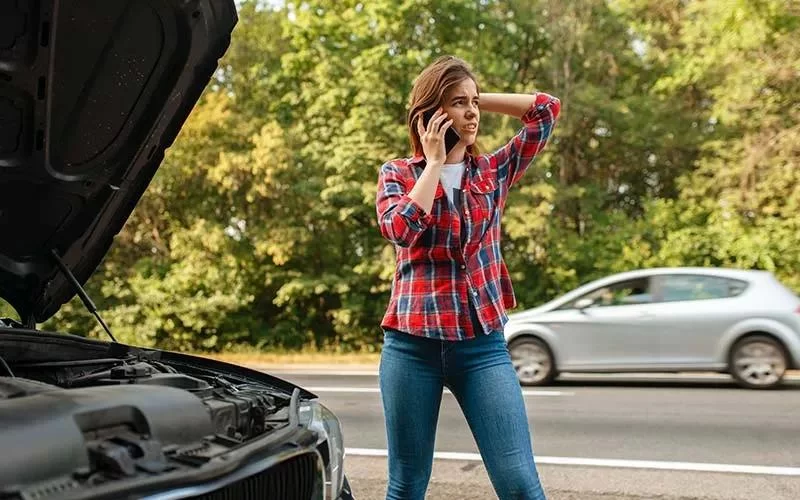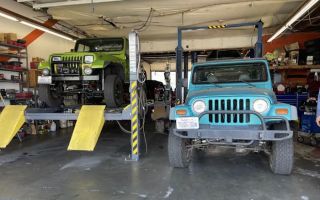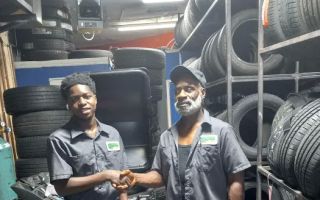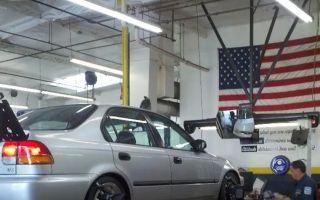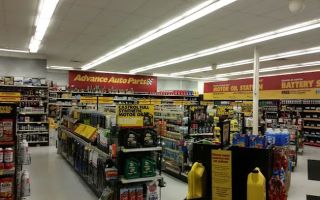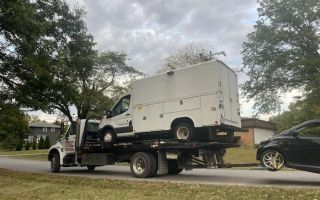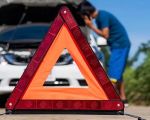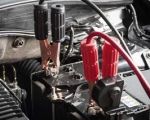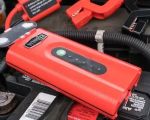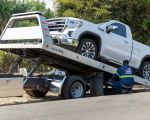Jumpstarting Your Car vs. Calling Roadside Assistance – What’s the Best Option?
Few things are more frustrating than turning the key and hearing nothing but silence. A dead car battery can happen at the worst times, leaving me with a crucial decision—should I attempt to jumpstart the car myself, or should I call for roadside assistance? Over the years, I’ve encountered this situation multiple times and learned the advantages and drawbacks of both options. In this guide, I’ll break down when to jumpstart a car myself, when to call for professional help, and how to make the safest choice.

Pick Your Part - Help Yourself
1232 Blinn Ave, Wilmington, CA 90744, USA
1. Understanding How Jumpstarting a Car Works
Before comparing both options, I always remind myself how a jumpstart actually works. When a battery dies, it means it no longer has enough power to turn the engine over. By using jumper cables and another vehicle with a working battery, I can transfer enough electricity to my car’s battery to get it running again. However, it’s not always that simple—especially if there are underlying battery or alternator issues.

Pick Your Part - Greer
13054 E Wade Hampton Blvd, Greer, SC 29651, USA
1.1 What I Need to Jumpstart a Car
To successfully jumpstart my car, I need a few essential tools:
- A set of heavy-duty jumper cables
- Another vehicle with a fully charged battery
- Protective gloves and safety glasses (optional but recommended)
- A portable jump starter (if no other car is available)
1.2 Steps to Jumpstart a Car
Once I have the necessary equipment, I follow these steps carefully:
- I position both vehicles close enough for the cables to reach but without touching.
- I turn off both cars and ensure the emergency brakes are engaged.
- I connect the red (positive) jumper cable to the dead battery’s positive terminal.
- I attach the other end of the red cable to the positive terminal of the good battery.
- I connect the black (negative) jumper cable to the working battery’s negative terminal.
- I attach the final black cable to an unpainted metal surface on the dead car (not the battery terminal).
- I start the working vehicle and let it run for a few minutes.
- I attempt to start my car—if successful, I let it run to recharge the battery.
- I carefully remove the cables in reverse order.
2. Benefits of Jumpstarting a Car Myself
There are several advantages to handling a jumpstart on my own, assuming I have the tools and knowledge:
2.1 Saves Time
Waiting for roadside assistance can take anywhere from 30 minutes to several hours. If I’m in a safe location and have jumper cables or a portable jump starter, I can be back on the road within minutes.
2.2 Cost-Effective
Calling a towing service or roadside assistance often comes with a fee, especially if I don’t have a membership with an auto club. Jumpstarting my car myself eliminates this cost entirely.
2.3 Convenient in Remote Areas
There have been times when I was far from a city or towing service, making self-jumpstarting the only viable option. A portable jump starter is especially useful in such scenarios.
3. Risks of Jumpstarting a Car Without Professional Help
3.1 Battery or Electrical System Damage
If I connect the cables incorrectly or if my battery is severely damaged, attempting a jumpstart can cause sparks, electrical damage, or even an explosion in extreme cases.
3.2 Underlying Car Issues
Sometimes a dead battery isn’t the real issue—faulty alternators, corroded terminals, or deeper electrical problems could be to blame. If I jumpstart the car only to have it die again shortly after, I know I need professional help.
3.3 Safety Hazards
Jumpstarting a car in the dark, in bad weather, or on a busy roadside increases my risk of injury. If I ever feel unsafe, I call for roadside assistance instead.
4. When Calling Roadside Assistance is the Better Choice
There are times when calling for professional help is the safest and smartest option. Here’s when I don’t take chances and call for roadside assistance instead:
4.1 When I Don’t Have the Right Equipment
Without jumper cables or a working second vehicle, my only option is to rely on a roadside service to help me get back on the road.
4.2 When the Battery is Completely Dead
If I hear no clicking sound when I turn the key, or if my lights and electronics aren’t working, my battery may be beyond saving. In this case, I need a professional jumpstart or battery replacement.
4.3 If I’m in a Dangerous Location
If my car breaks down on a highway, a busy road, or during extreme weather, I prioritize my safety and call a service like Rescue & Towing to assist me.
4.4 If I Suspect a Bigger Issue
If my car’s battery keeps dying repeatedly, I suspect a deeper issue with the alternator, wiring, or starter motor. Rather than risk further damage, I call a professional for a proper diagnosis.
5. Choosing the Best Option Based on My Situation
Ultimately, the decision to jumpstart my car or call for assistance depends on the circumstances. If I’m in a safe area, have the right tools, and know that my battery just needs a quick boost, I’ll handle it myself. However, if I’m unsure about the problem or in an unsafe location, I don’t hesitate to reach out for help.
For fast, reliable roadside assistance, I always recommend Rescue & Towing. Their expert team provides jumpstart services, towing, and battery replacements, ensuring that I never have to face a dead battery alone.

